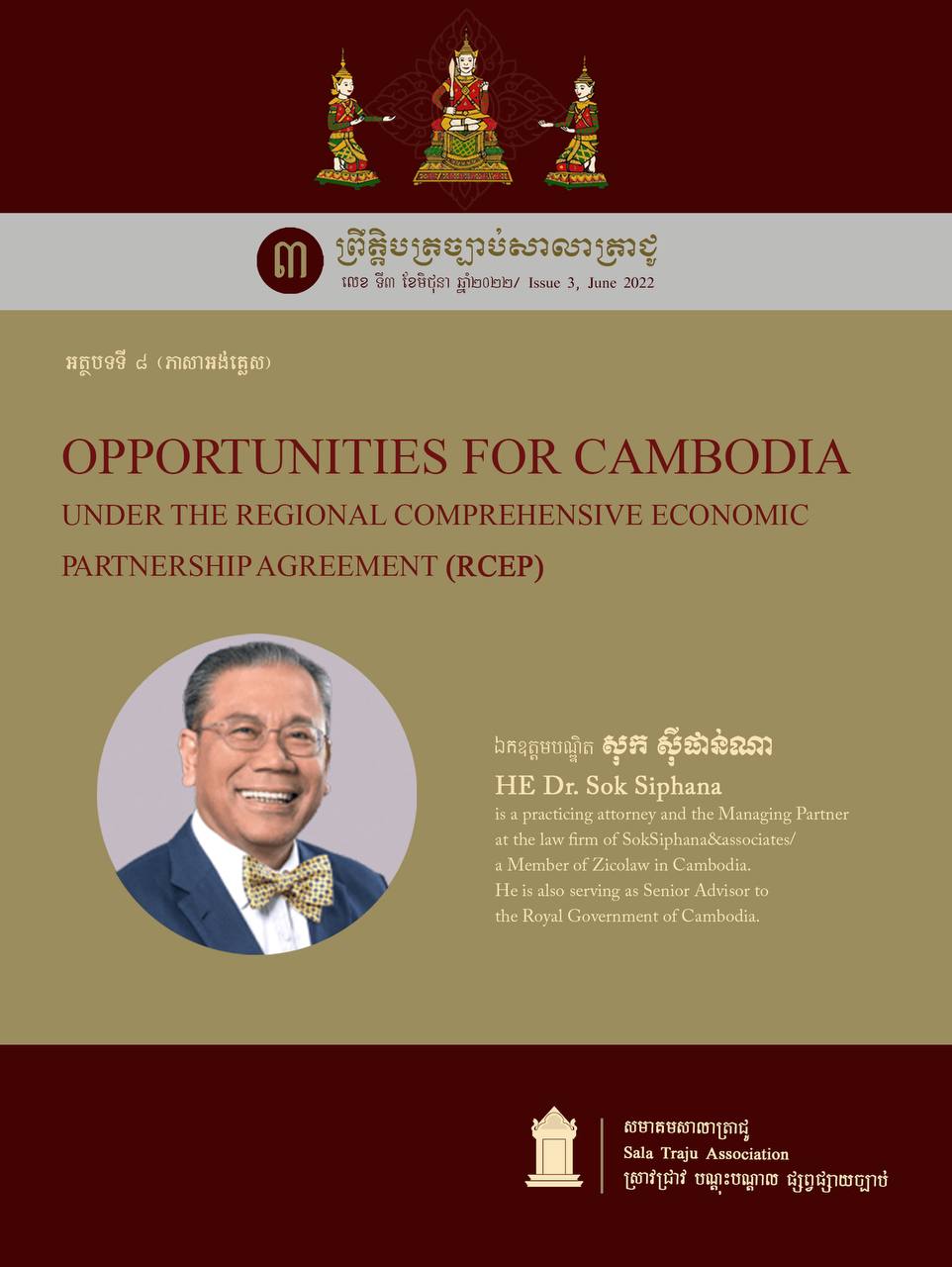1. When Cambodia took on its ASEAN chairmanship in January 2022, the Regional Comprehensive Economic Partnership Agreement (RCEP) has entered into force. By virtue of its size and the diversity of its membership, RCEP has become a fundamental building block for deepening trade liberalization in the Asia-Pacific. It marked a major leap forward for the world, at a time when multilateralism is faltering, and global growth is also losing steam.
2. After eight years of intense negotiations, ASEAN has achieved a historic landmark with their development partners from China, Japan, South Korea, Australia and New Zealand with the signing of the RCEP on November 15, 2020. Contextually, this mega free trade had its genesis more than a decade ago when on August 2011 the East Asia Summit Economic Ministers welcomed a Chinese and Japanese joint “Initiative on Speeding up the Establishment of the East Asia Free Trade Agreement (EAFTA) and the Comprehensive Economic Partnership for East Asia (CEPEA)”. The concept of the RCEP was introduced subsequently at the 19th ASEAN Summit in November 2011. After one year of discussions the RCEP framework was endorsed in Phnom Penh at the 21st ASEAN Summit in November 2012. The ceremony to launch the RCEP negotiations was attended by Leaders of ASEAN countries and the six FTA Partners countries, namely China, Japan, the Republic of Korea, Australia, New Zealand and India. In May 2013, the first negotiation round was kicked started in Brunei Darussalam.
3. The formation of RCEP is a lengthy process, and has taken eight years, 46 negotiating meetings and 19 ministerial meetings to complete it. In November 2019, at the third RCEP summit held in Bangkok Prime Minister Modi announced the withdrawal of India from the trade pact, thus reducing the number of RCEP negotiating countries to 15 countries. By that time, the grouping had already concluded the text-based negotiations for all 20 chapters and essentially the bulk of their market access issues. Despite the uncertainties behind the prolonged COVID19 pandemic, the legal text scrubbing was initiated to ensure that the agreement could be signed at the next ASEAN summit in 2020.

